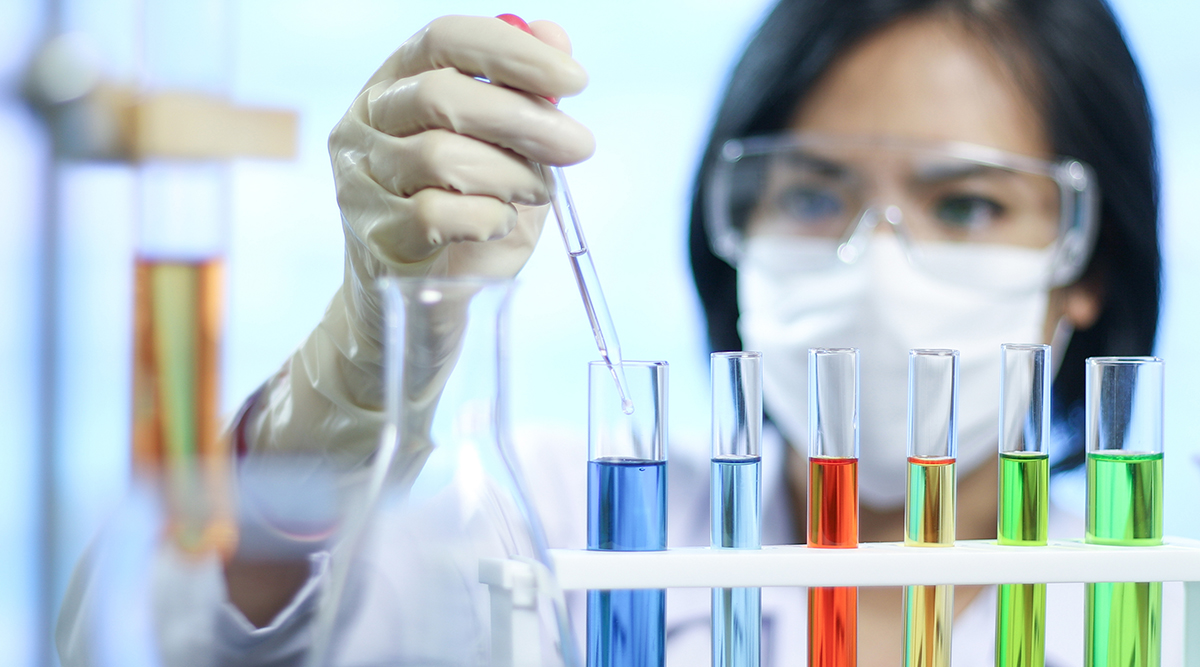
Getting The Word Out
Spreading the word about the groundbreaking work being done to enhance the sustainability, nutrition, safety, and accessibility of the global food supply is the responsibility of all members of the science of food profession. IFT member Richard D. Ludescher shares one way he has found to "influence the influencers" and encourages others to do the same.

Science Magazine, founded in 1880 by journalist John Michels with financial backing from Alexander Graham Bell and Thomas Alva Edison (who needed positive press due to delays in delivering the new electric lights that he had promised), became the official journal of the American Association for the Advancement of Science (AAAS) in 1900. As every aspiring scientist knows, it is now one of the most prestigious scientific journals in the world; a single publication in Science can make one’s career.
The AAAS is now the largest scientific organization in the world with over 120,000 individual members—or as we tend to know them—subscribers to Science. It is also an organization of hundreds of other scientific organizations, including the Institute of Food Technologists. As the IFT affiliate representative to the AAAS, I work to leverage this affiliation to help get the word out to the world about the science of food. The AAAS Annual Meeting provides one of the most important venues for such communication.
In February, IFT sponsored a scientific session at the 2021 AAAS virtual Annual Meeting on a topic that is, or should be, central to current discussions of the gut microbiome. This session—They (and We) are What We Eat: Linking Diet and Gut Microbiome to Human Health—brought together six experts in food science and nutrition from around the world (three presenters and three respondents) to summarize current knowledge of how diet and specific foods interact with and modulate the gut microbiome and the possible consequences of these interactions for human health and well-being.
This session included a critical review by Joanne Slavin (University of Minnesota) of the known and suspected connections among specific elements of the Western diet, the gut microbiome, and overall human health (eat your fiber); a call by Vincenzo Fogliano (Wageningen University) to formulate and process foods that nurture both us and our gut microbiota, with specific suggestions based on his research (lower bioaccessibility is key), and a summary of recent research by Diana Roopchand (Rutgers University) elucidating the molecular mechanisms by which dietary polyphenols encourage specific gut microbiota that support metabolic resistance to chronic diseases such as metabolic syndrome and type-2 diabetes (grape pomace can be much more than a waste product). Lively discussions with Don Schaffner (Rutgers University), Carolyn Slupsky (University of California—Davis), and Daryll Cockburn (Penn State University) explored some implications of these ideas.
We chose the AAAS Annual Meeting as our venue because of its potential to influence the influencers. Although the AAAS convention is far from the largest annual scientific conference, with total attendance usually less than 5,000, it is perhaps the most important for getting the word out to the general public, as over 1,000 of those attending are journalists. The AAAS conscientiously encourages such outreach; all scientific sessions at the meeting represent short (90 minute) surveys of the state of knowledge on a particular scientific topic that has broad social, environmental, or practical consequences as well as current relevance. The AAAS also exemplifies social relevance by insisting that the presenters at scientific sessions reflect diversity in scientific discipline, gender, race, and ethnicity, institution, geographical area, and career stage.
The relevance of food for human health is undeniable. Unfortunately, however, the current conversation is often controlled by individuals motivated more by an agenda than by curiosity; more by headlines than by arguments; more by anecdotes than by evidence. The AAAS Annual Meeting provides a venue that allows us, interested members of IFT who want to help communicate our good work, to broaden the conversation in ways that truly reflect the science of food and all its nuance. Given the current state of food research and innovation, the range of topics is extensive. Relevant topics include but are not limited to:
- Minimal processing and the safety of foods
- The current and future prospects for lab grown meat
- Vegetable protein substitutes
- Blockchain technology and its implications for food system
- Novel sensors for food quality, stability, and safety
- Role of food technology in climate change
- Food waste minimization and feeding the planet
Anyone can propose a scientific session or workshop for the 2022 AAAS Annual Meeting. All you need is a relevant and timely topic and a confirmed list of three presenters, among other requirements. The theme for the 2022 AAAS Annual Meeting is Empower With Evidence, and will focus on science literacy, evidence-based decision making, and the use of validated knowledge to drive public policy for the benefit of all. The submission deadline is June 17, 2021. Feel free to contact Farida Mohamedshah at IFT or Richard Ludescher at Rutgers University for assistance in the selection of a topic or in the preparation of your application. Help get the word out about our important work in the science of food.
About the Author
Richard D. Ludescher, PhD, is a professor in the department of food science at Rutgers University.
